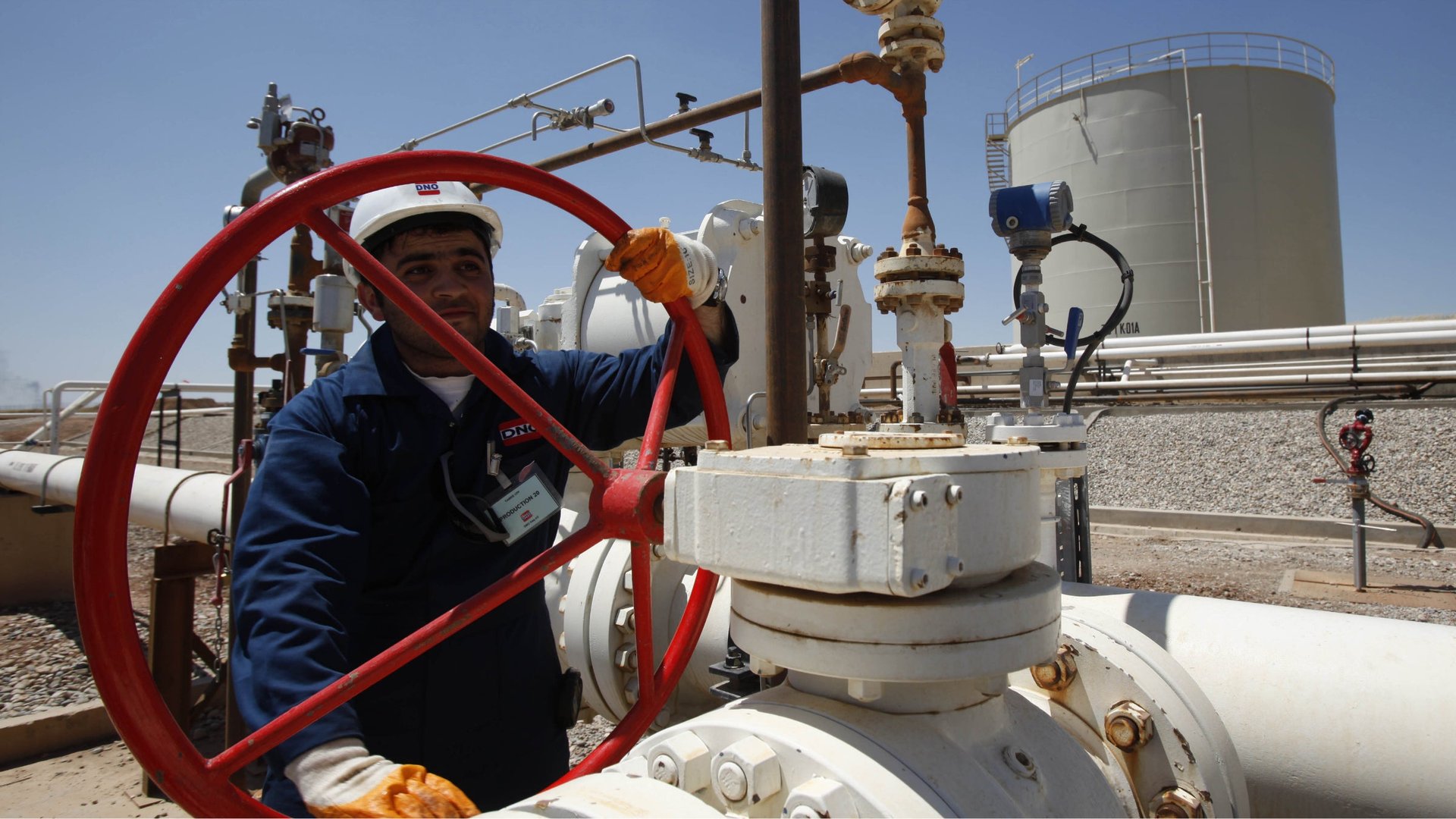Baghdad and Kurdistan both need Big Oil on their side, but only the Kurds know how to attract it
Iraq is finally acting against oil companies that persist in flouting its authority by working in autonomous Kurdistan without permission. Baghdad has told one of them—Russia’s Gazprom—to choose: Either cancel your oil deal with the Kurds, or get out of Iraq proper. Gazprom hasn’t yet responded. But, acting pre-emptively before the fall of the ax on it as well, ExxonMobil has signaled to Baghdad that it is packing its bags in favor of the Kurdish north.


Iraq is finally acting against oil companies that persist in flouting its authority by working in autonomous Kurdistan without permission. Baghdad has told one of them—Russia’s Gazprom—to choose: Either cancel your oil deal with the Kurds, or get out of Iraq proper. Gazprom hasn’t yet responded. But, acting pre-emptively before the fall of the ax on it as well, ExxonMobil has signaled to Baghdad that it is packing its bags in favor of the Kurdish north.
Baghdad seems to be drawing a line in the sand after a year of largely standing by while company after company has disregarded its wishes and done oil deals with Kurdistan. But will such tough tactics succeed in bringing wayward Kurdistan and the oil companies back into line? That is doubtful. Yet it may not matter.
One line of thinking is that the dealmaking in the north by the big oil companies—in addition to Exxon and Gazprom, France’s Total and Chevron have rebelled (third item in this piece)—might buck up independence-minded Kurdistan, but that it doesn’t necessarily harm Baghdad. After all, the International Energy Agency said on Nov. 12 that Iraq is becoming an energy linchpin: It will account for 45% of all new global oil supplies over the next quarter-century. While being showered with attention may improve Kurdistan’s self-esteem, it is, by contrast with Iraq, in the minor leagues. Baghdad may lose the service of some oil companies, but others will flock to drill its petroleum. Worse for the upstart Kurds, Iraq in the end controls the export pipeline out of the region, and if it wants it can choke off the north.
So why are the ordinarily conservative companies pushing Baghdad this way? Because the contract terms in the south are miserly—ExxonMobil, for example, earns a measly $1.90 for each barrel it produces above and beyond a quota. That is not a respectable upside in the high-risk-high-reward fossil-fuels business. And Kurdistan is offering better terms. So, in a letter last month, Exxon told Baghdad that it hopes to have sold its stake in the supergiant West Qurna I oil field by December.
For Kurdistan, the strategy is clear. In part by getting its oil industry scaled up, it hopes “to carve out more autonomy,” says Joost Hiltermann, deputy Middle East director for the International Crisis Group. “That’s the minimum. Ideally they want to be independent. They make no bones about that.” (In an article (paywall) in Foreign Affairs, Hiltermann argues that “the Kurds will remain stuck in Iraq, but more and more on their own terms.”) In line with that aim, the Kurds are reported to be in advanced talks with Abu Dhabi National Energy for a majority stake in a producing oilfield called Atrush.
Ultimately, Iraq’s reasoning doesn’t seem right. It is true that if you try hard enough, someone will come drill your oil. But when companies with the prestige of ExxonMobil vote with their feet, it undermines the losing country’s reputation. In addition, if you want to more than double your oil production in a few years, which Iraq is desperate to do, you want first-rate majors like Exxon and Chevron on your side. Baghdad is playing brinksmanship with them, but in the end it will probably strike some kind of deal to keep Big Oil on its side of the border.